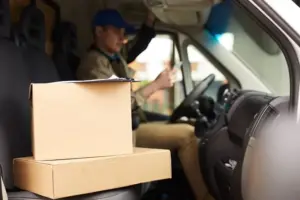Understanding the Coming and Going Rule in Workers’ Compensation Cases
Connect With Us
04Sep
Understanding the Coming and Going Rule in Workers’ Compensation Cases
Most employees assume that any work-related injury automatically qualifies for workers compensation benefits. However, workers compensation law includes an important limitation known as the coming and going rule.
Under the North Carolina Workers Compensation Act, an injury must arise “out of and in the course of employment” to be compensable. The coming and going rule generally excludes injuries sustained while an employee travels to work or returns home after completing job duties.
In simple terms, workers compensation typically does not cover ordinary commuting accidents, but as with most legal doctrines, there are important exceptions.
Understanding how the coming and going rule works in North Carolina workers compensation cases can help injured workers determine whether coverage may still apply.
What Is the Coming and Going Rule?

The coming and going rule in North Carolina states that injuries sustained while commuting to or from work are usually not covered by workers compensation.
For example:
- An employee is involved in a car accident or motor vehicle accident while driving to work.
- An injury occurred after the employee leaves a job site and trips in a public area.
In most situations, these injuries are not considered to occur within the course of employment or the course and scope of employment. The general rule exists because commuting risks are shared by the public at large, and the employer does not control those conditions.
However, the going and coming rule is not absolute. Courts recognize that certain circumstances create a stronger connection between employment and the injury.
Why the Rule Exists
Workers compensation coverage is designed to protect employees when an accident arising from their job duties causes harm. To qualify, there must be a causal connection between the employment and the injury.
When an employee simply travels to or from work, courts often find that the accident occurred outside the course of employment. In those cases, the injury is treated like any other traffic or public accident.
That distinction becomes important when evaluating workers compensation claims involving commuting injuries.
Key Exceptions to the Coming and Going Rule
Although the coming and going rule limits many claims, several recognized exceptions may allow workers compensation benefits when an injury occurred during travel.
Whether an exception applies depends heavily on the facts.
The Premises Exception
Under the premises exception, an injury may be compensable if it occurs on the employer’s premises or on property owned, controlled, or maintained by the employer.
This may include:
- The employer’s parking lot
- Adjacent premises used as entry or exit points
- Property owned or employer owned property connected to employment
Even if the employee has not yet clocked in, an injury that occurs on the employer’s premises may still fall within the course of employment.
Parking lot cases are common in North Carolina workers compensation disputes. If the parking lot is part of the employer’s premises, such injuries may be generally covered.
However, if the injury occurs off premises that are not part of property owned or controlled by the employer, the premises exception may not apply.
The Special Errand Exception
The special errand exception applies when an employee performs a special errand or work related task at the request of the employer.
For example, if an employee travels for a business purpose outside regular working hours and the accident occurred during that assignment, the special errand exception may apply.
This often includes:
- A business trip
- Dual purpose trips that combine personal and business reasons
- Assignments that directly benefit the employer’s business
Under the dual purpose doctrine, sometimes called the dual purpose rule, coverage may extend if the work-related component would have required a separate journey even without the personal errand.
There is also a related concept known as the traveling salesman exception. Courts may extend workers compensation coverage to traveling employees whose employment regularly requires travel between job sites, client locations, or even a patient’s home.
In these situations, travel is part of the claimant’s employment itself, not just incidental commuting.
The Transportation Exception
The transportation exception applies when travel is a required part of the employment contract.
In some jobs, the employer provides a company vehicle or company owned vehicle for business use. In others, transportation costs are reimbursed as part of compensation. Some employees regularly travel between job sites as part of assigned duties.

When transportation is a condition of employment rather than a mere accommodation, injuries sustained during that travel may fall within the course of employment.
For example, if an employee suffers a workplace injury while operating a company vehicle provided under the employment agreement, the exception may apply because the employee travels to further the employer benefits.
However, if transportation is offered casually or as a courtesy and not required under the employment contract, workers compensation coverage may not extend to those injuries.
The key question is whether the travel created a sufficient causal connection to the employer’s business.
How Courts Evaluate Commuting Injuries
When courts evaluate whether the coming and going rule applies in North Carolina workers compensation cases, they look closely at the facts.
They consider whether:
- The accident occurred on the employer’s premises
- The employee was performing job duties at the time
- The travel served a business purpose
- A distinct departure from employment occurred
Even small factual differences can determine whether injured workers are entitled to workers compensation benefits.
For example, construction workers who travel between job sites during the workday may be treated differently than employees who simply commute from home to a single location. Similarly, employees who run a work related task during travel may fall within an exception when other employees would not.
When a Claim Is Disputed
If an insurance company denies workers compensation claims based on the coming and going rule, the dispute usually centers on whether an exception applies under North Carolina workers compensation law.
These cases often require close analysis of the employee’s job duties, the employment agreement, and whether the injury occurred while furthering the employer’s business. Even small factual details can influence whether an exception applies.
Because commuting-related injuries fall into gray areas, workers compensation coverage is not always as straightforward as many employees expect. If your claim has been denied or you are unsure whether an exception may apply, speaking with an experienced workers compensation attorney can help you better understand your options.
The legal team at Waple & Houk, PLLC, regularly evaluates complex workers compensation cases, including disputes involving the coming and going rule. A careful review of the facts can make a meaningful difference in how a claim is resolved.
Workers’ Compensation
And Family Lawyers
Providing
Strength In A
Time of Crisis
Call US now:
Our Success
Case Results
$80,000
Elbow Injury
$350,000
Arm Injury
reviews
What Real Clients Have To Say




